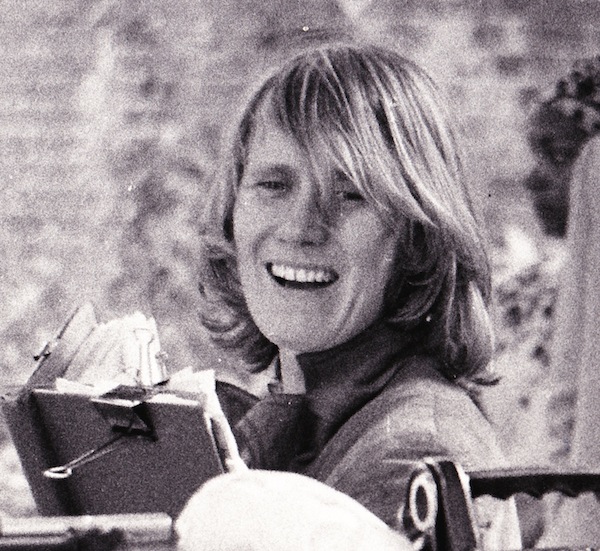Penny Eyles
Script Supervisor
Eyles, Penny (Script Supervisor)
Penny Eyles was born in Buckinghamshire in 1938 and after attending secretarial college worked initially as a secretary for a London-based advertising agency in the 1950s before joining the BBC as a Producer’s Assistant in the early 1960s. Here she worked in a number of different departments and she credits this on-the-job training with teaching her skills of organisation and diplomacy which she brought into her professional career as a script supervisor. From 1967 onwards she worked principally in feature film continuity with a number of directors including Stephen Frears, Sally Potter, Ken Loach, Terry Gilliam, Bill Douglas and Robert Altman, amongst others. She now teaches master classes for film students at a number of UK colleges. In her recording Penny describes her BBC ‘apprenticeship’ and the working hours and culture of feature film production. She reflects on her own practice, discussing the contribution continuity makes to the story-telling process and the importance of visual information. She describes the role of the script supervisor as a ‘referee’, tasked with balancing competing demands and expectations on set, and how working in commercials helped her understand the role played by editing. She also talks about implicit gendered attitudes in the profession towards women and continuity.
©Melanie Bell

Interview
This Interview is protected. Please Sign in with your home institution.
How to cite this page
Women’s Work Oral Histories/Oral Histories/Melanie Bell, Women’s Work in British Film and Television, https://learningonscreen.ac.uk/bectu/Oral Histories,Friday 26th April 2024.
-
WOMEN’S WORK ORAL HISTORY PROJECT
Terms of Use:
By accessing this recording and transcript I confirm that I am a student or staff member at a UK Higher Education Institution or member of Learning on Screen and agree that this material will be used solely for educational, research, scholarly and non-commercial purposes only. I understand that the recordings and transcripts may be reproduced in part for these purposes under the Fair Dealing provisions of the 1988 Copyright, Designs and Patents Act. For the purposes of the Act, the use is subject to the following:
- The work must be used solely to illustrate a point
- The use must not be for commercial purposes
- The use must be fair dealing (meaning that only a limited part of work that is necessary for the research project can be used)
- The use must be accompanied by a sufficient acknowledgement. Guidelines for citation and proper acknowledgement must be followed (click here).
- It is prohibited to use the material for commercial purposes and access is limited exclusively to UK Higher Education staff and students and members of Learning on Screen.
I agree to the above terms of use and that I will not edit, modify or use this material in ways that misrepresent the interviewees’ words, might be defamatory or likely to bring BUFVC, the University of Leeds or my HEI into disrepute.